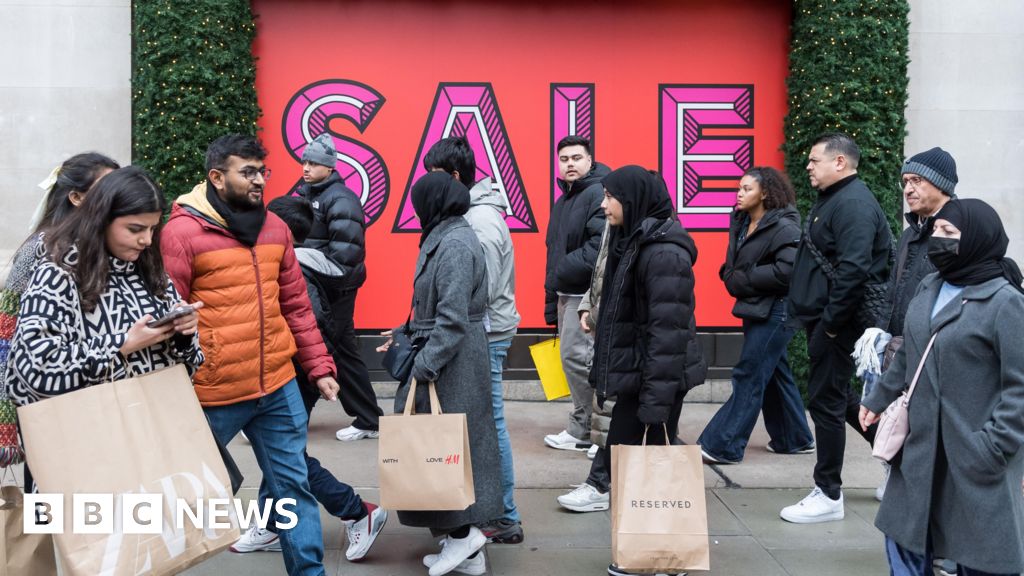Shoppers spent more in December compared with the year before but it wasn’t enough to make up for an overall lacklustre year for retailers, new figures suggest.
Doing particularly well over Christmas were gifts including beauty advent calendars, jewellery and AI-enabled tech, the British Retail Consortium (BRC) said.
December’s growth of 3.2% was boosted by a big weekend of Black Friday sales, which are normally included in November’s figures.
But with growth for the last three months of 2024 being only 0.4% higher than the previous year, it finishes a weak 12 months for retailers overall, and the BRC warned that 2025 would be “challenging” due to rising taxes and wage costs.
Although many firms are yet to report on their performance over the Christmas period, the BRC said the new year would see retailers grapple with rising National Insurance Contributions, a higher National Living Wage, as well as new packaging levies.
On Tuesday, High Street fashion chain Next said it would have to raise clothes prices to help offset an increase of £73m in wage costs.
Meanwhile, Barclays reported that consumer spending on debit and credit cards was flat in December. It said people were splashing out on entertainment and leisure but this was offset by cutbacks in some essential spending.
‘Difficult’ conditions
Across the year, sales in 2024 were 0.7% higher than in 2023.
The BRC said a last-minute bump in December sales came from Christmas shopping and the fact that Black Friday sale was included in the month’s figures.
“Food sales fared better over the Christmas period, ticking up slightly from the previous year, meanwhile beauty products, jewellery and electricals made a strong showing under the tree this year,” said the BRC’s chief executive Helen Dickinson.
Although slower than the year before, food sales increased over the year by 3.3%, and by a higher amount in December.
Separate data from research firm Kantar said December was the busiest month for supermarkets since the pre-lockdown rush during the pandemic in 2020. It said that people were minding their budgets, with the sale of own-brand products growing.
Budget supermarket Lidl said it had the most successful Christmas in its history, boosted by people buying festive food such as pigs in blankets and turkey.
But the BRC’s figures showed people spent less on other things – sales for non-food items over the year fell by 1.5%.
Overall, the last three months of last year “failed to give 2024 the send-off retailers were hoping for”, in a “challenging year marked by weak consumer confidence and difficult economic conditions”, Ms Dickinson said.
Retail analyst Natalie Berg from NBK Retail said: “Consumers aren’t battening down the hatches just yet.”
But she added: “Shoppers will likely face higher prices and fewer discounts in the coming months.”
Lower footfall
Throughout the year, the number of people going to bricks-and-mortar shops fell for the second year in a row, the BRC found.
Footfall dropped 2.2% in 2024, having also fallen in 2023, despite some shops taking measures, such as offering free wine, to attract shoppers.
Even days considered to be bumper sales days for retailers have seen lower footfall.
In 2024, Boxing Day saw a 6.2% drop in visitors to high streets, and a drop of 4.2% to shopping centres compared with the year before, data gathered by MRI Software showed.
In 2025, New Year sales in the first five days of January saw a decline in footfall, with high streets seeing almost 4% fewer visitors than 2024. MRI’s Jenni Matthews said the decline was significant, and worsened by travel disruptions and snowfall.
